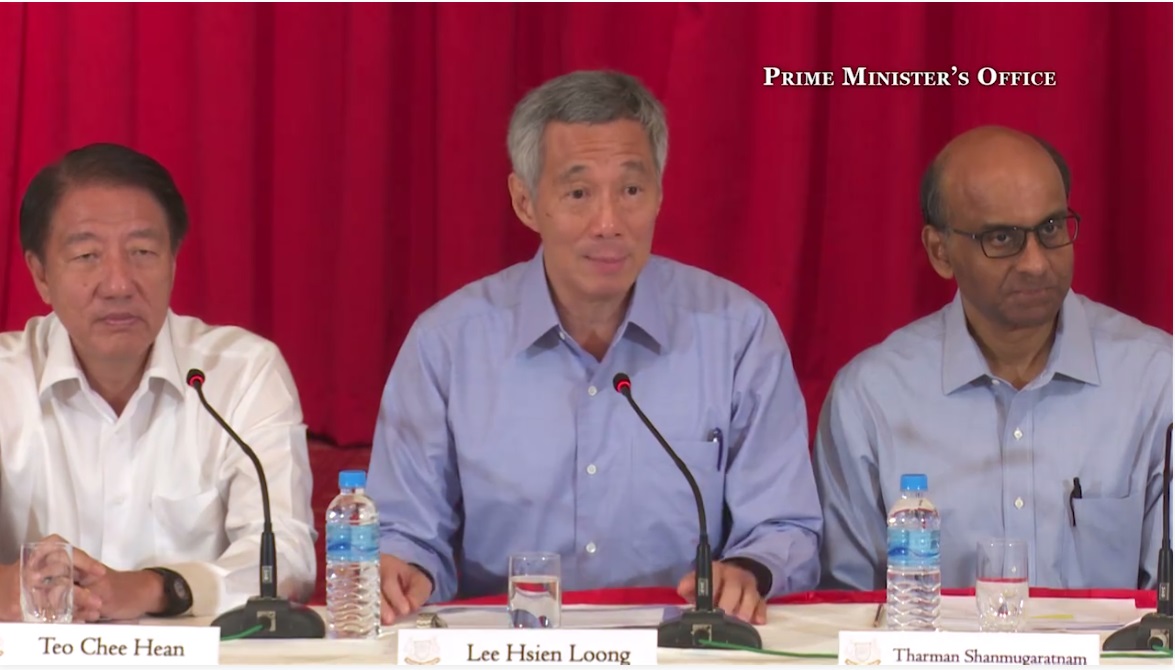
Coordinating Ministers are not new to the structure of the Singapore Cabinet. They allow for one more level of oversight to ensure that there is harmonisation of the implementation of key strategic directions in public policy and that there are no gaps. Think back to the population influx that Singapore experienced some years back, which critics felt was not well planned for in terms of the provision of adequate physical and social infrastructure. By then, in 2010, the National Population and Talent Division was formed and headed by DPM Wong Kan Seng and later, by DPM Teo Chee Hean after GE2011.
DPM Teo was also the coordinating minister for national security. Homeland security and national defence are usually represented by two sets of bodies which take pride in having distinct specialisations from each other but non-traditional security threats of today make these divides quite artificial.
After GE2011, DPM Tharman Shanmugaratnam was tasked to set and coordinate the broad direction and intent of economic and social policy that was then translated across the work of several ministries. Among other things, social safety nets were strengthened, education policy modified to focus on skills development and the wages of low-waged, low-skilled workers were improved.
The other reason for Coordinating Ministers, as highlighted by the Prime Minister on Monday, is tied to his current imperative of readying the fourth generation of political leaders to take over the reins soon after the next general election. He said he is prepared to try out new faces and younger leaders with the assurance to his team and the broader public that there are senior members who can mentor them. The whole process of nurturing leaders has to be fast-tracked, the process of socialising many of them to what is required in working with the public service and interacting with the public will have to be well-facilitated. This is also why the fastest risers tend to be people who are almost ready-made, with some experience operating in the public service, whether civilian or military.
In the case of infrastructure, the emphasis now is not just on providing affordable homes and smooth public transportation but on intelligent, eco-sensitive urban planning in a carbon-constrained world. Add into the mix, considerations about ensuring that there are enough healthcare, childcare, eldercare as well as hawker centres to provide for the other needs of the population. There are a lot of strands that have to be pulled together including say the Ministry of Environment and Water Resources beat with its management of water and energy efficiency in order to do these well. There have been many announcements about the re-development of whole districts – Jurong, Bidadari, Tengah and so on which should be developed with all those considerations in mind.
Similarly, infrastructure is crucial as Singapore pursues initiatives to encourage entrepreneurship. The growth and development of industrial and business hubs will support the next wave of knowledge-driven and high-tech industries. Entrepreneurs don’t just need affordable real estate with longer leases; they need to be meaningfully sited with each other to take advantage of the agglomeration effects of feeding off each other’s activities. This needs planning. (Refer also to the MND’s Land Use Plan and LTA’s Land Transport Masterplan.)
In government, there will be the micro, specialised level of activities that will have to be be attended to, but they exist within the broader macro, strategic level of national strategy. Yes, the demand on the supporting secretariat to liaise with the counterparts across specific ministries will be high, and the decision-making lines of authority have to be clear to truly reap the benefits of this governance arrangement. The hope is that moving into the use of coordinating ministers more firmly will reduce the gaps in policymaking and the likelihood of one part of government being blindsided by another. This will leave enough bandwidth for political and public service leaders to cope with the real surprises should they ever come upon us.
Dr Gillian Koh is a Senior Research Fellow at IPS. Those who are interested in reading about how public service has changed in the 21st century may like to refer to this book.
Top image screengrab from Lee Hsien Loong’s Facebook

![[The Angle] 4th generation leaders and the new Cabinet line-up](https://ipscommons.sg/wp-content/uploads/2015/09/GOH_0102_cropped_resized.jpg)
![[The Angle] A closer look at the contested issues in the GE2015 campaign](https://ipscommons.sg/wp-content/uploads/2015/09/issues1.png)
![[The Angle] Leadership and the sweet spot between book-smarts and street-smarts](https://ipscommons.sg/wp-content/uploads/2015/09/raffles.png)
